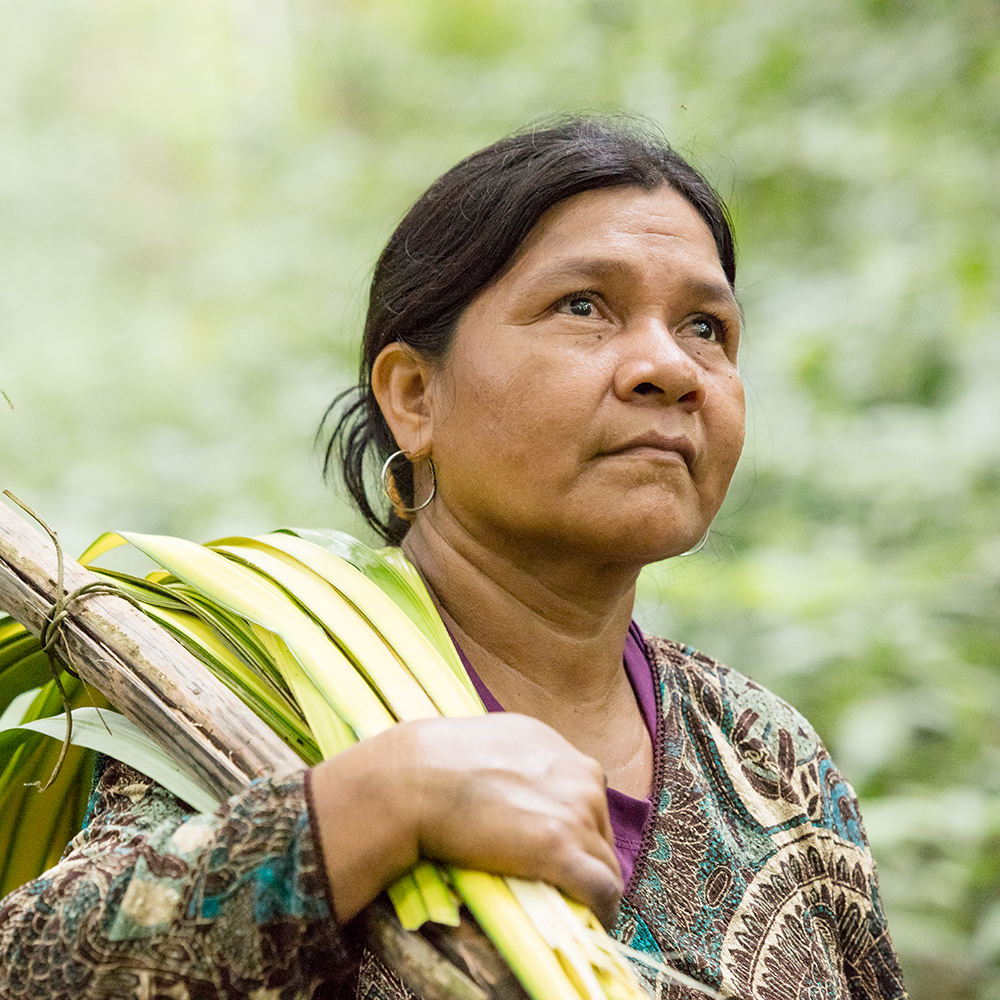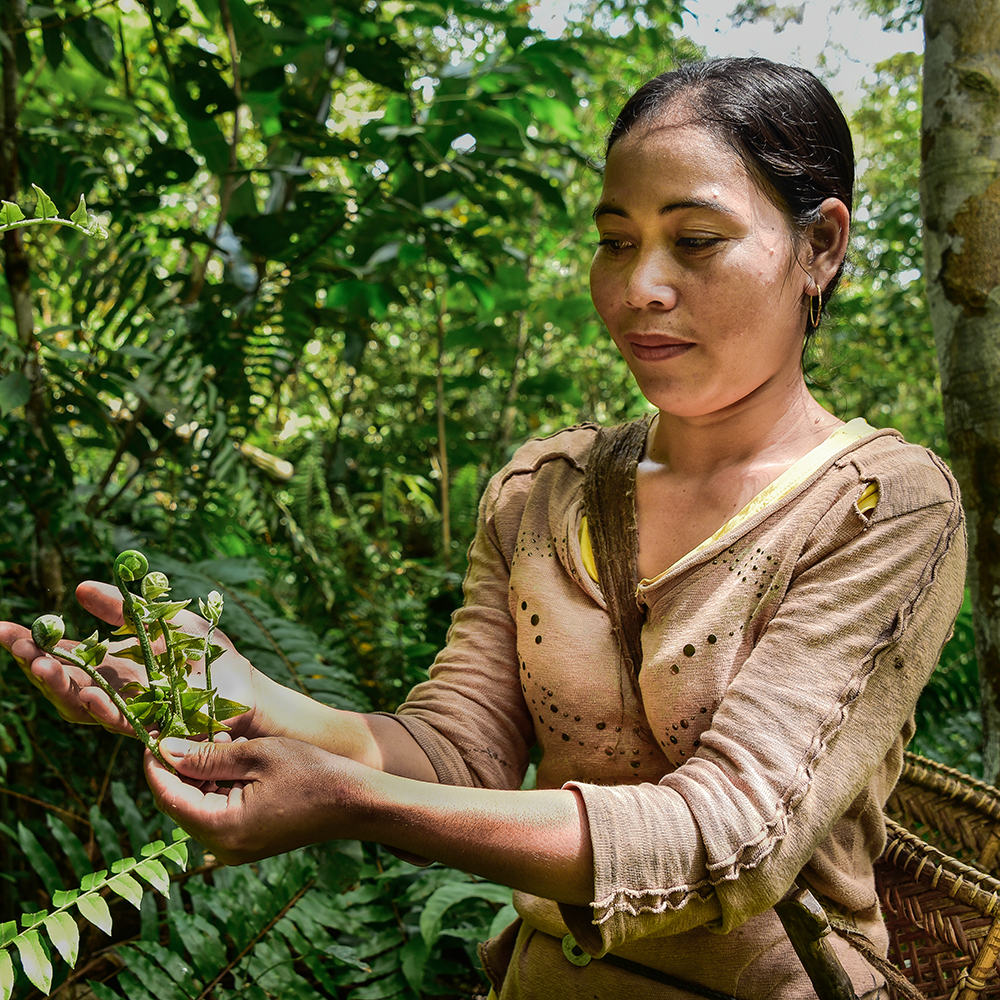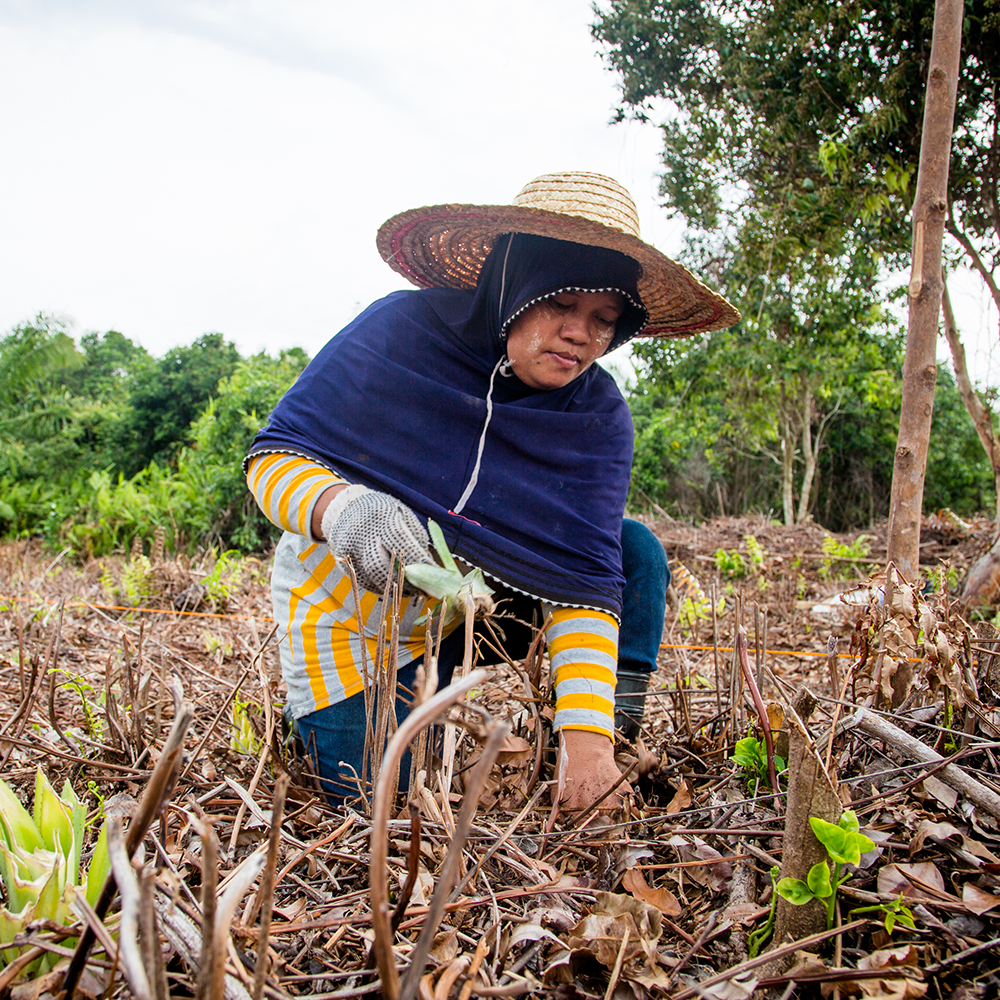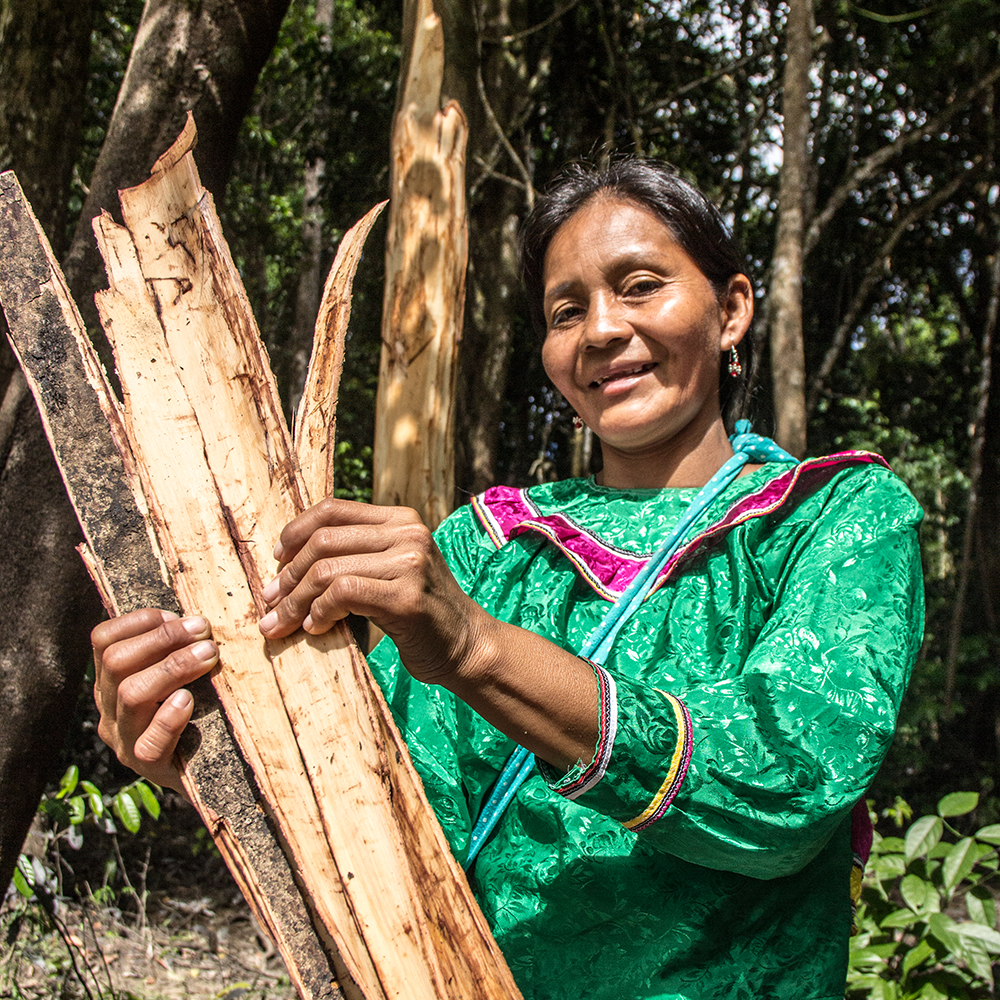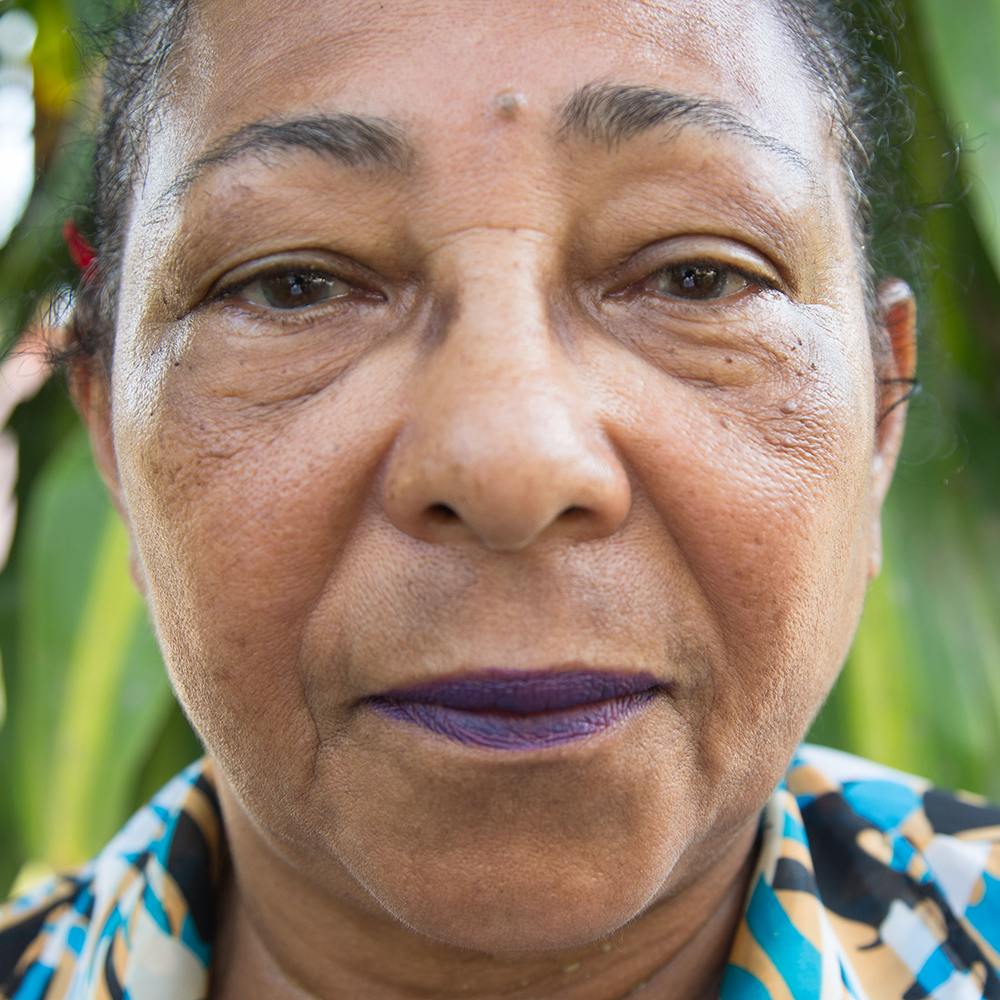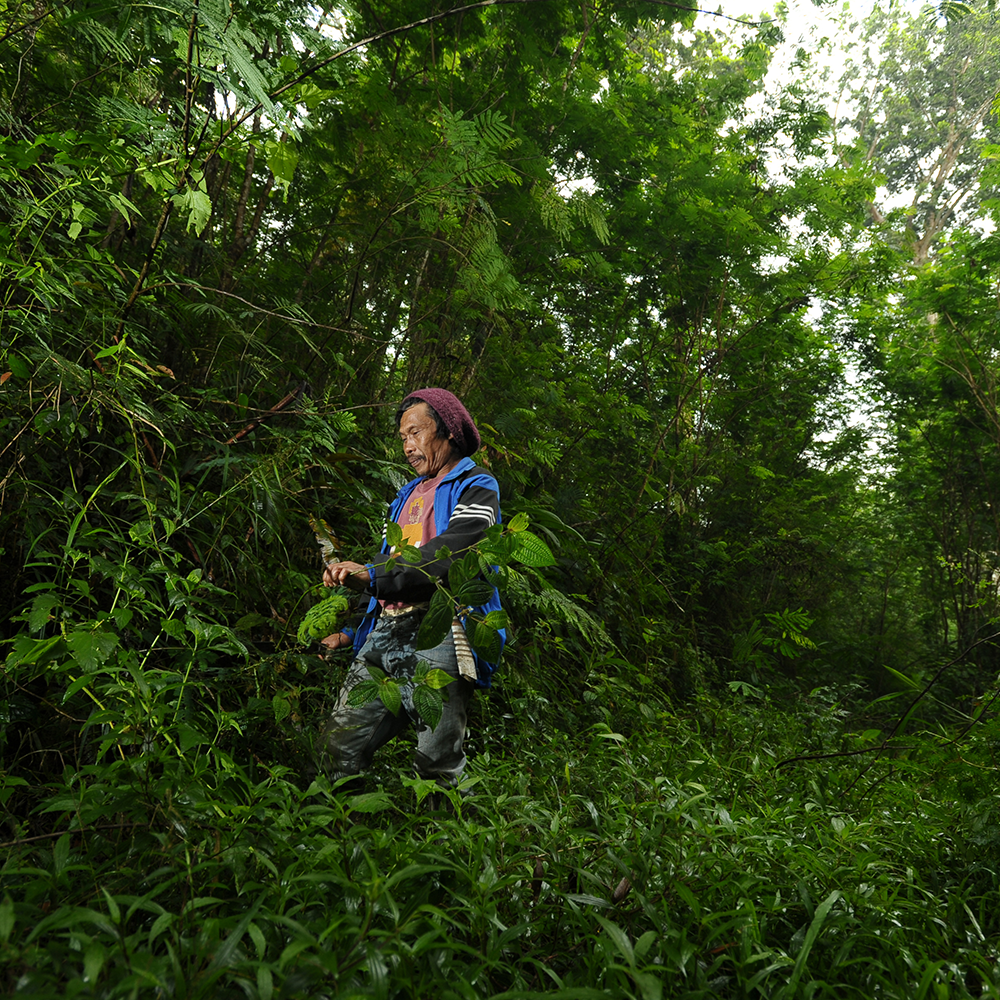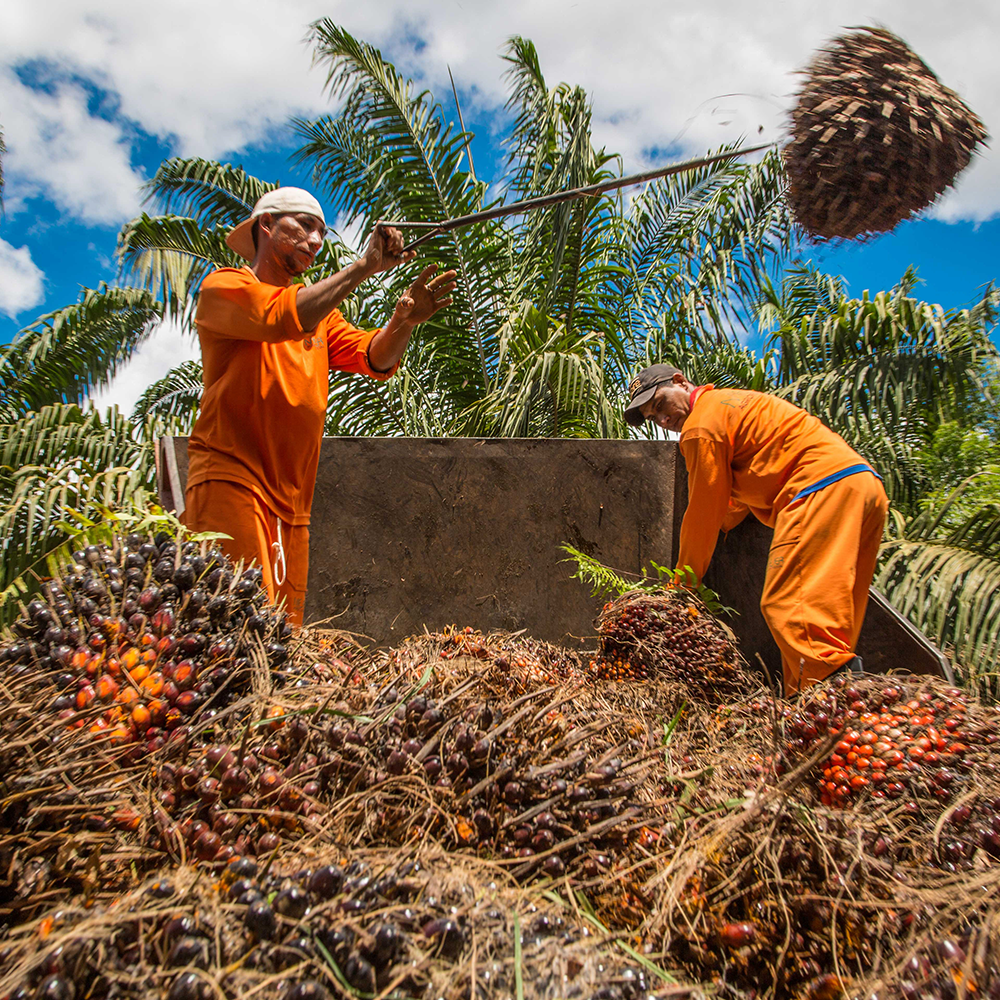FORESTS FOR PEOPLE AND PLANET
Support Forest Communities
How Funders Can Support
- Directly finance Indigenous and community organizations, networks, and movements to support them in mobilizing, advocating, and administering their programs.
- Fund security and collective protection for land and environment defenders and communities at risk, including strategic communications capacity so defenders and communities can connect their stories to global conversations in their own voices.
- Scale up support to existing modalities that advance Indigenous and community land rights and forest management, such as the International Land and Forest Tenure Facility.
- Help community enterprises attract new sources of capital, expand market access for their forest product value chains, and advocate to reduce regulations that discriminate against small producers.
- Mobilize public-private partnerships to scale up innovation and impact in community forest management. Consider a Global Initiative dedicated to mobilizing big investments and coordinating partnerships to finance rights- and market-based innovations to scale community ownership and engagement in sustainable economic activities.
Related Resources
Climate & Forests 2030 Papers
- Community Forest Management (Hodgdon)
- Social Enterprise and Innovation: Opportunities for a New Development Model in Forest and Rural Areas (Castro, Brito, & Grottera)
Other publications
- Securing Rights, Combatting Climate Change. World Resources Institute (2014)
Protect Forests
How Funders Can Support
- Support development and research that increases the value of standing forests to local, regional, and global communities, including through innovation in sustainable product lines and their marketing, and through the recognition and valuation of services that forests provide, including for human health.
- Finance the strengthening of protected areas and of Indigenous and forest community territories, particularly those buffering against expanding deforestation frontiers.
- Support and finance the creation of new protected areas and of Indigenous and community territories.
- Support policies and programs that generate large-scale public and private finance for forest protection, including “jurisdictional” REDD+ payments and other large-scale “Payment for Environmental Services” programs.
Related Resources
Climate & Forests 2030 Papers
- Forests and Climate: Impacts, Mitigation, and Adaptation – Scientific Assessment (Nolan, Field & Mach)
- Strategies for Triggering Transformative Climate Change Pathways: Towards “Fit for Purpose” Philanthropic and Donor Engagement (Cashore)
- Forests and International Carbon Markets (Keohane & Seymour)
Restore Forests
How Funders Can Support
- Support policy development to promote natural forest regeneration and active restoration in critical geographies.
- Utilize grantmaking and impact investments to help ensure access to de-risking capital to facilitate private sector finance for forest restoration.
- Invest in monitoring restoration, scaling and sharing successful technical, financial, and social impact solutions, and collecting and sharing restoration knowledge so it is globally accessible.
Resources
Other publications
- Afforestation & Reforestation: Restoring trees to ecologically suitable landscapes Economist Intelligence Unit
Connect Human & Forest Health
How Funders Can Support
- Fund and promote research and communications that draw attention to the connections between human and ecosystem health (i.e., ‘One Health’) and the relevance to pandemic prevention.
- Consolidate and package the evidence base of links between human, animal, and environmental health;
- Support effective ‘One Health’ awareness campaigns on the human-environmental health connection; and,
- Invest in the public health community’s research and understanding of links between ecosystem integrity, deforestation drivers, and human health.
- Catalyze development of a major multilateral pandemic prevention fund to channel billions of dollars annually toward pandemic prevention in key “source” regions.
- Invest in fire prevention and management programs to protect forests and public health.
- Support efforts to reduce animal meat and dairy consumption and reform industrialized agribusiness practices.
Related Resources
Climate & Forests 2030 Papers
- Human Health, Land Use, and Climate in a Changing World (Corvalan & Sena)
JUSTICE AND EQUITY
Center Justice & Equity
How Funders Can Support
- Increase investments in:
- Promoting Indigenous peoples, local communities and women, in leadership roles in all types of climate and land use organizations and providing general support to such organizations
- Grassroots environmental defenders.
- Critically assess funding protocols and processes to see how and where they might exclude or undermine the participation and leadership of marginalized populations; work with grantees on developing outcomes and indicators.
- Engage new allies who already have a strong justice and equity orientation – such as faith communities, public health advocates, and unions – and who can engage even where civil society is weak.
- Learn from those who receive support. Learn from how grassroots organizations are integrating agendas and developing solutions on the ground.
Related Resources
Climate & Forests 2030 Papers
- Bringing a Justice Frame to Climate Philanthropy and Finance (Mease & Lemma)
Other publications
Defend Civic Space & Movements
How Funders Can Support
- Support organizational resilience and invest in core capacities of civil society, including physical, mental, emotional, and digital security; management; administration; and communications.
- Support collective initiatives that build and strengthen civil society networks, bolstering effective roles, complementarities, and synergies across a range of actors, including for social mobilization.
- Identify and fund service providers that can support organizations to achieve adequate levels of compliance with regulatory obligations.
- Support organizational preparedness assessments for key partners to identify and address risks and gaps.
- Include resources in grantmaking for regulatory assessments, prospective analysis, and legal advice.
- Map and support the ecosystem of environmental defenders and organizations that can offer security services to foster dialogue, provide assessments, and support prevention and collective security, including long term advocacy and policy work to raise the political cost of attacks.
- Build capacity within youth- and other movement-based organizations focused on positive social change.
- Facilitate positive, respectful, and balanced relationships between civil society and relevant private sector and government representatives to address challenges proactively.
Related Resources
Other publications
- Civic Engagement and Government (Ford Foundation)
Mobilize Support & Solidarity
How Funders Can Support
- Invest in organizations’ and movements’ communications priorities and capacities.
- Contribute to a healthy media ecosystem staffed by journalists with the expertise and resources needed to undertake in-depth reporting and investigations.
- Ensure organizations and movement leaders have resources to both organize and advance their priorities and to respond to dis/misinformation, online trolling, and attacks.
- Support new voices and organizations beyond those typically focused on sustainability and listen to, amplify, and support those advocating for social, racial, and gender justice and equity.
Related Resources
Climate & Forests 2030 Papers
- Engaging Religious Leaders and Faith Communities for Forest, Climate, and Land Use Solutions (Mock)
- Turning the Corner on Forests and Land Use (Goldmark)
Advance Governance & Accountability
How Funders Can Support
- Support the security needs of land and environmental defenders so they can defend themselves, their organizations, and their communities from intimidation and violence.
- Promote participatory governance, including community-led monitoring systems, and a strong and safe ecosystem of investigative journalism.
- Support litigation to provide grassroots and civil society organizations with legal recourse against illegal actions both domestically and internationally when abrogation of international agreements are relevant (e.g. ILO 169).
- Establish and implement demand-side policies that create incentives for companies and financial institutions to invest in supply chain traceability, due diligence, and compliance systems, while ensuring private sector leadership against illegality and human rights violations
Related Resources
Climate & Forests 2030 Papers
- Nature Crime: Understanding and Tackling a Key Threat to the Climate and Land Use Agenda (Barber, Winfield, Petersen)
- The Nexus of Climate Change, Ecological Disruption, Stability, and Security (Sikorsky, Rezzonico & Lim)
Other publications
SUSTAINABLE, INCLUSIVE ECONOMIES
Fix Financial Systems
How Funders Can Support
- Expand, accelerate, and learn from initiatives that integrate disclosure of climate-related material risks into financial markets and the activities of companies and governments, including best practices and guidelines, as well as rules and regulations.
- Fund work that better characterizes exposure to climate- and nature-related risks and regulatory advocacy to require such disclosures in the financial system, along with extended financial liability, stress testing requirements by banking regulators, adjusted valuations on sovereign bonds and other investments, and stranding of forest assets that should never be converted (analogous to asset stranding in the fossil fuel sector).
- Support transparency and access to information that promotes citizen action and engagement, individually and in organizations, as financial system change agents — as taxpayers, pensioners, consumers and voters.
Related Resources
Climate & Forests 2030 Papers
- A Climate-Smart Forest Economy: How to Unleash the Full Climate Potential of Forests and Forest Products (Lawrence, Taylor, Wishnie, Zimmer)
- How will the Global Economic Crisis linked to the Covid-19 Pandemic affect Tropical Forests? (Kaimowitz & Wunder)
Other publications
Improve Consumption & Trade
How Funders Can Support
- Promote incentives and disincentives to eliminate deforestation from commodity supply chains through public procurement and trade legislation.
- Promote systems-wide change through effective regulation to eliminate deforestation from supply chains and advance market certainty.
- Support transparency, disclosure, and standards for private sector initiatives to advance deforestation-free commodities and align with 1.5° climate pathways and science-based targets for climate and nature.
- Contribute to testing jurisdictional sourcing areas.
- Identify and support entry points for a “deforestation-free” consumer agenda in domestic markets and with China and India, where “deforestation-free” imports could be considered in the context of broader trade agreements. Ensure that national organizations and experts are in leadership roles rather than “importing” western campaigning models.
- Highlight opportunities for leadership in healthy diets in key emerging economies, including China and Brazil, emphasizing a combination of health, environment, and food security benefits consistent with local priorities and leadership of local institutions.
Related Resources
Climate & Forests 2030 Papers
- Private Sector Engagement (Pollard)
- Reducing Global Deforestation Associated with Commodity Supply Chains in China (Li)
- India: Markets and Supply Chains for Climate, Forests, and Land Use (Chaturvedi)
Other publications
- Growing Better: Ten Critical Transitions to Transform Food and Land Use (The Food and Land Use Coalition)
